Andy Hamilton – ex of ‘Self-sufficientish’ has written books on foraging, and his new book New Wild Order is out now. Here’s his take on whether foraging is bad for the countryside and wildlife:
“Your lot will strip the countryside bare”. My mate looked at me in the eye, a flash of anger passed across his face. I wager he’d been waiting to say this to me for some time and was now itching for a fight. “Is that what you think”? I retorted and changed the subject, swiftly.

I’ve referred to myself a forager for around 20 years now and this little chestnut of a comment feels like it will never go away. I recently saw an article about how great foraging was, with the headline: “Excessive foraging prompts ban”.
More often than not, the idea is too solidified in the mind of the arguer and they are not ready to listen to a reasoned response. That’s what a thousand years of conditioning will do.
The idea that foragers are an inherent evil, I think started with the Norman invasion. A way to keep the hoi polloi, aka the indigenous British, off your newly acquired land. It certainly gathered pace during the enclosures. It was a way to undermine an act of defiance that saw the natives exercising their right to pick food for the table at no cost to themselves.
Self-provisioning as a political act is to be free of the state and state rule. The easiest way to control a population is through their stomachs. If you can’t access game and forage food you can’t put food on the table. You have to work, if you have to work you have to abide by the rules of your employer – you are no longer a free (wo)man.
If you then head to the supermarket to get your food, the money you spend goes back into a chain that supports low wages, high-yield mono-cropping and cripples local businesses.

I pick from the same small area frequently. I live in a city so many others also pick in the same area too. The local wildlife has not diminished because of our activity. We will naturally leave enough food, berries and nuts, they are the ones we can’t reach. These are enough for the birds. We inevitably, drop the occasional berry which will help feed small mammals and grow new plants in new areas.
I also look out for moth and butterfly eggs on the underside of leaves. I sprinkle the seed of local plants in areas that have been made barren by dog walker’s feet or the wheels of mountain bikes. I tread a path through wild garlic areas that doesn’t disturb the first shoots. If I see ground nesting birds I’ll leave that area well alone until I know the birds have fledged.
When picking mushrooms I leave the bigger ones to spore, and the smaller ones to grow. I leave ones that are particularly filled with maggots as these maggots become hoverflies.
There are other human activities happening in the area. The effects of social distancing (remember that delight), are still being felt as the dirt paths grew wider and plants got trampled. These paths, at least near me, never shrank back down. Then you have building work. Whole areas are being cut up and turned into offices that remain empty. Road building and cars parking on verges have an impact too.
Lastly, there is the incessant tidying up of areas. Just as the blackberries were about to fruit in a wild spot near our kids school, someone decided to chop them all down and “clean up” the area. Birds became homeless and parents bought plastic wrapped sweets and crisps from the shop to make up for the lost free snacks. Our own hedge and grass verge at the back of our house is frequently cut, which means fewer grasshoppers and crickets and less food for the hedgehogs.
I know all this as I tend to pick locally and have an intimate relationship with the land within a half mile from my house. I can see where tarmacked driveways and the building of outbuildings have caused ground water to swell. How badly thought-out pathways and the chopping down of trees also cause local floods.

This is why I teach foraging and think it’s important. I want to give freedom to people. I want to see a system that supports the environment and the people within it. I want to see people actively engaged with their environment, falling in love with it and eating healthily. It’s hard to get all that across over a pint in a busy pub but perhaps you’ll read this. Perhaps then I can simply say, most foragers love what they pick in ways difficult to understand. So no, we don’t strip the countryside bare – but your lifestyle might.
Now, shall we have a foraged beer each for the next round?






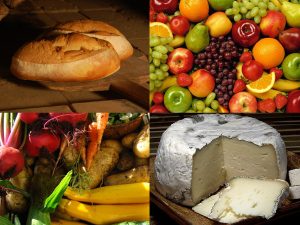
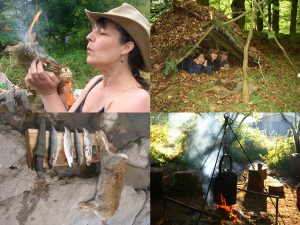


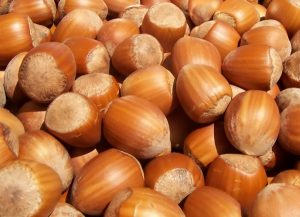
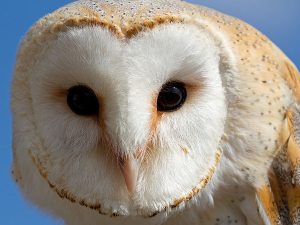
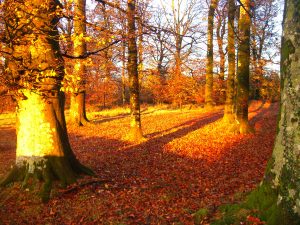
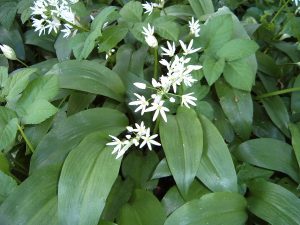
8 Comments
Completely agree. As if foraging has anywhere near as much impact on nature as motorways or a flights, for example No-one who flies or drives on motorways gets these kinds of comments.
Thank you for the great blog post, Andy, I’ve been foraging sustainably on a small scale since the 1950’s and I agree with you. I particularly like that you teach people how to forage mindfully. Well done you. Best wishes, Ann.
Read the work of Robin Wall Kimmerer. A professor of botany who is an indigenous person herself, she teaches the ways of indigenous people who have always had to live by foraging; and so could not afford to strip Nature bare. “Only take half” is one of the watchwords; and “Do not pick the first plant that you see. It might b the only one”. Like this, indigenous people safeguarded their own supplies and cared for large ecosystems, being themselves part of Creation.
I particularly like her story of collecting wild rice in North America. The rice grows in water, and is harvested by shaking the projecting stalks, so that the grain falls into your canoe. But a lot of it also falls into the water. This method was criticised by the white people as showing up the laziness of the native people- they could have been more “efficient” and collected much more rice. But the native people didn’t see it that way: they wanted to sow at the same time enough rice to be seed for next year, and also to encourage the ducks which are also good to eat. While the indigenous people were the only ones, very diverse ecosystems were usual in North America. Look now at the species loss, the contaminated lakes…
Dave – It’s been known since the early years of the 20th century that more roads leads to more traffic. More roads also leads to less land to grow crops be they wild or cultivated. I do wonder if one day we’ll slow down and notice that we have all this available land.
Hey Hilary – There is another great book – Tending the Wild – the suggestion put forward by that book is that many indigenous communities cultivated the “wild” lands. The land that was taken by settlers was more like wild farmland, we might call it a forest garden or agro-forested lands. I took these ideas into my research for the first chapter of New Wild Order. Combining this with research into seaweed farming and evidence to suggest the importance of the sea in regards to not just our diet but migration.
The combination of this approach to our food meant that the communities of California kept down the brush, using controlled burning this kept forest fires to a minimum.
As climate change threatens our homes and farmed crops we will need alternatives. The return to a “cultivated wild” or agro-forested land is maybe the only real choice – perhaps we can turn the roads into forests.
And Ann – Thank you!
I could not agree more with your comments. The U.K. population has been programmed over hundreds of years with many ideas associated with land use, colonialism which benefit only the wealthy. The commons have been trained for compliance for great historical reasons, like women after the centuries of witch burnings, we now limit our require ta of our overlords, we police our own behaviour and even defend a status quo which is now effectively indefensible. The average age of a U.K. farmer is practically retirement age. We import about half of our food from abroad. If the incredibly fragile food and drink global supply chains we rely on to feed us experience any interruptions, due to adverse weather, or civil disruption, quite how our population of 80 million souls, many living some distance from the land, might survive after the first three days, I don’t know. I for one have given up expecting the U.K. government to take a lead on this. We grow our own food, forage responsibily and are keen to grow culture of local collaborative food production, jam making in community kitchens, cheese making lessons for beginners. It’s great, healthy, delicious, saves time and waste. We really do need to do it for ourselves. It could be an important part of building resilient communities. And making where we live a safer place to care for our families.
What would happen if foraging became very common and every household in the UK foraged every week?
Perhaps whilst it remains an elitist, fringe, middle class practice it is not doing much harm to local wildlife.
But what if it became the norm? Is that really sustainable?
Liz – it won’t become that common. I think it’s becoming less common, as people spend more of their time online.
No-one can be excluded from foraging, so it’s just about the least elitist thing imaginable.
And it would have to go some to be as damaging as modern industrial agriculture.